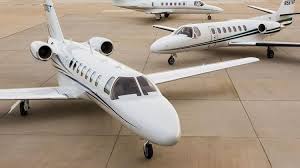The Nigeria Customs Service (NCS) has once again shifted its stance on the controversial issue of unpaid import duties on private jets, granting indebted owners an additional one-month grace period to regularise their payments. This new window follows fresh consultations and lobbying by affected parties, many of whom are influential individuals and companies.
Spokesperson for the service, Abdullahi Maiwada, made the announcement on Thursday, noting that the decision was reached after further dialogue with stakeholders. He explained that Customs would suspend the enforcement exercise for another month to allow more private jet owners to comply voluntarily.
“We decided to ground aircraft, but after consultations and a mutual understanding, we are suspending the action for another month,” Maiwada said. “We believe they genuinely want to comply. It is just a matter of regularising documents and paying the appropriate customs duties.”
The Customs Service had previously grounded over 60 private jets between Monday and Wednesday, as part of a forceful move to recover unpaid import duties. These jets included luxury models such as the Bombardier BD-700 Global 6000, 6500, and 7500. Hangars at both Lagos and Abuja airports were reportedly sealed during the enforcement exercise.
This clampdown was the culmination of several failed attempts by Customs to enforce compliance since 2024. Back in October of that year, the NCS announced plans to ground jets that had failed to pay duties. The operation was set to begin on October 14, 2024, but the directive was suspended on the same day, and a one-month extension was granted to allow owners to participate in a verification exercise.
The verification initiative, which aimed to identify defaulters, was introduced to close revenue gaps caused by underpayment or non-payment of duties on imported private aircraft. The government believes that duties on many jets currently operating within Nigeria remain unpaid, running into billions of naira in lost revenue.
Many of the affected aircraft are reportedly owned by top executives in the banking sector, multinational oil firms, and high-net-worth individuals. Sources say several of these owners reached out to the Presidency to seek political intervention to regain access to their aircraft.
Despite the aggressive enforcement and political pressure, the Customs Service now appears to be softening its approach in favour of cooperation. Maiwada stressed that the decision was not a sign of weakness but a strategic move to encourage compliance without prolonged conflict.
However, some aviation experts believe the situation could have been avoided if better inter-agency coordination existed between the Nigeria Customs Service and the Nigeria Civil Aviation Authority (NCAA). Speaking on the issue, Capt. Muhammed Badamosi, an aviation analyst, said the NCAA should play a more proactive role by reminding aircraft owners of all regulatory requirements, including customs duties.
“The NCAA is the first point of contact for foreign-registered aircraft entering Nigeria. While they do not control Customs operations, they can guide aircraft owners on what is required for compliance,” Capt. Badamosi said. “If this was made clear from the start, we wouldn’t be dealing with this customs duty crisis today. It’s time we learn to do things properly from the beginning.”
He also emphasised that regulatory alignment between aviation and customs authorities would help prevent such issues in the future. “The NCAA needs to include customs-related requirements in its checklist for aircraft registration and operations. This will ensure better compliance across the board,” he said.
The suspension of enforcement by the Customs comes at a time when the federal government is under pressure to improve revenue generation. The repeated delays in recovering import duties on private jets raise concerns about fairness, particularly when other citizens and businesses are expected to comply promptly with tax laws.
It remains to be seen whether the latest grace period will lead to meaningful compliance or if it will become another case of postponement under elite pressure. With the new deadline now in place, all eyes will be on the Customs Service to see if this is the final opportunity for defaulters or just another delay.
